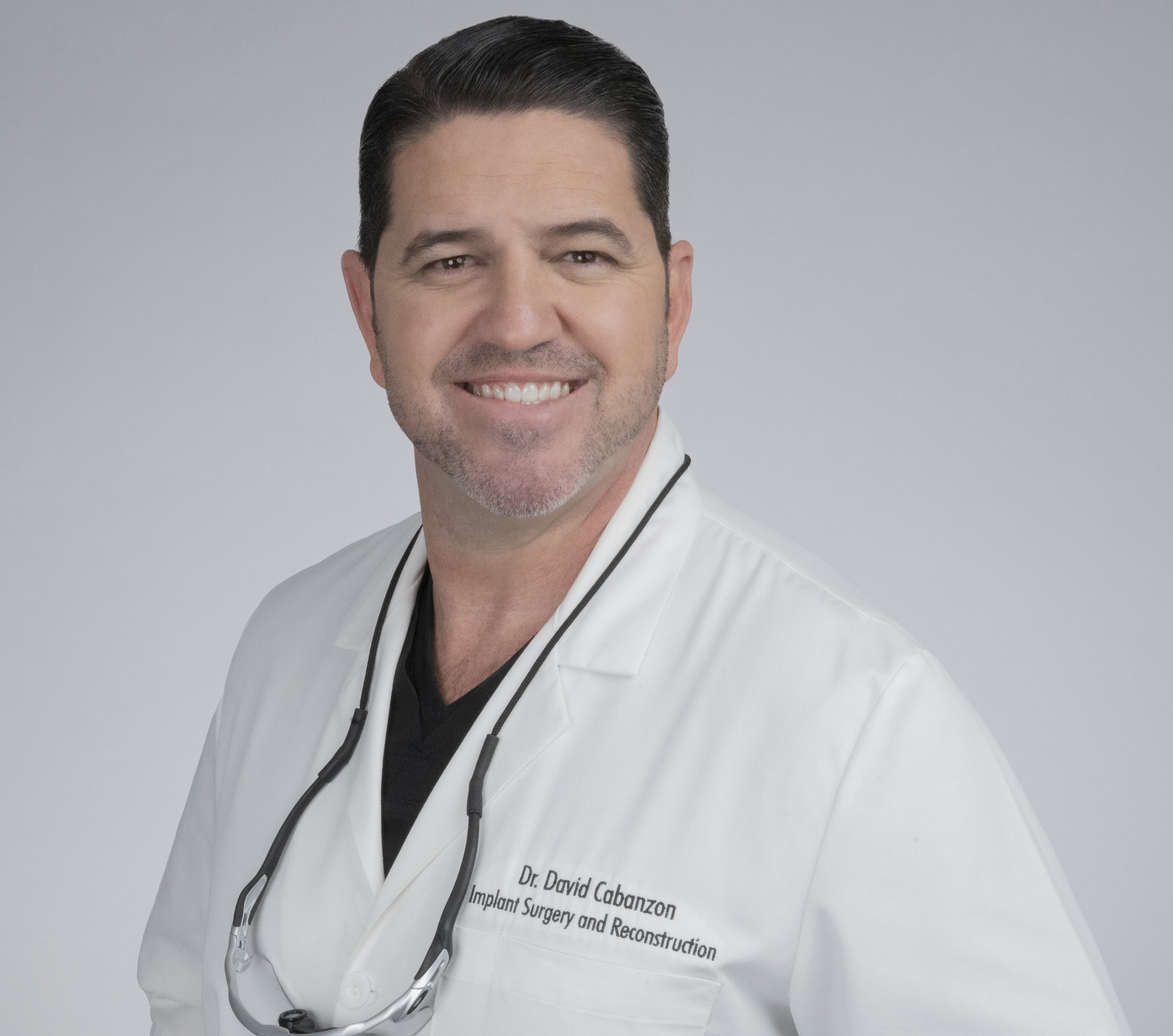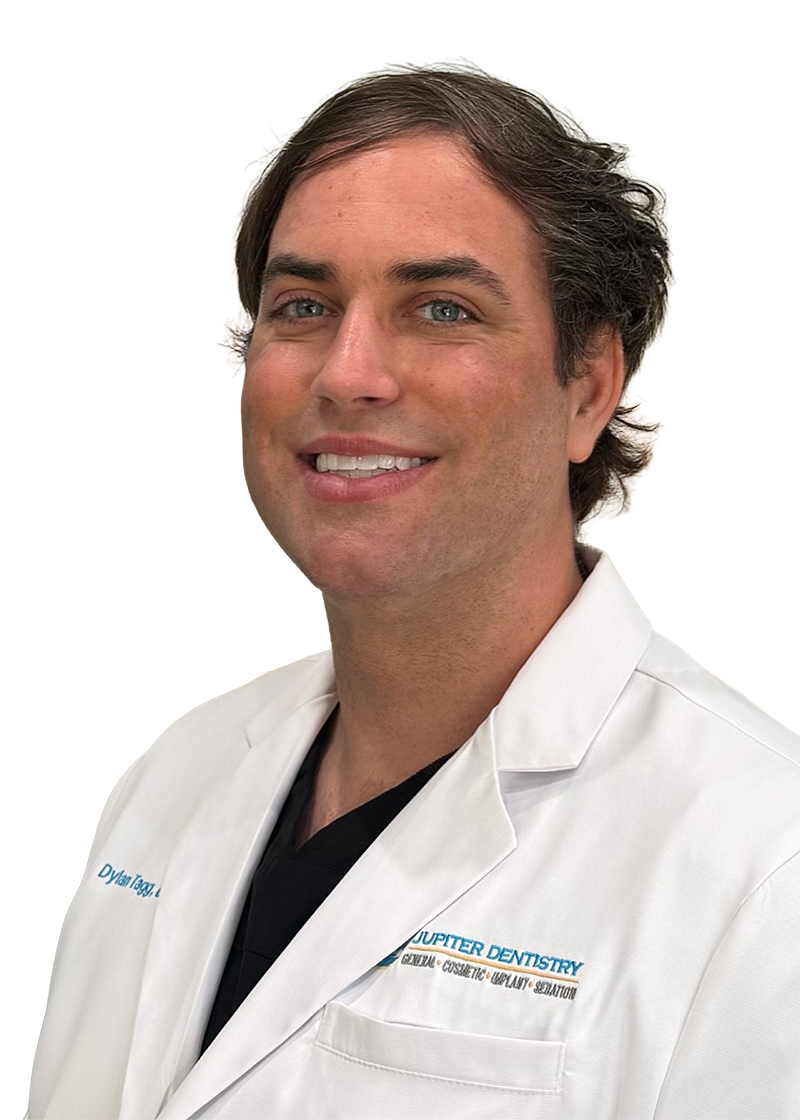Safe Dental Implant Surgery with Dr. Cabanzon


At Jupiter Dentistry, we specialize in restoring smiles and confidence with state-of-the-art dental implants. As a premier dental implant provider in Jupiter, FL, we guide our patients through a seamless dental implant process, offering high-quality care, advanced technology, and personalized treatment.
If you’re ready to see if dental implants are best for you, contact Jupiter Dentistry today by calling (561) 575-5599 and setting up an appointment. Dr. Cabanzon is one of the best dentists in Jupiter, FL., and will ensure that your smile goals are met.
The Dental Implant Process at Jupiter Dentistry
Initial Consultation and Evaluation
The first step in receiving dental implants is to schedule an initial consultation with our dentist in Jupiter. This assessment includes:
- A thorough dental examination
- X-rays and 3D imaging of your teeth and jawbone
- Review of your medical history
- Discussion of your expectations and treatment goals
From there, we’ll determine your dental implant candidacy and create your custom treatment plan.
Treatment Planning
Once you’re deemed a suitable candidate, we’ll develop a personalized treatment plan. This plan takes into account factors such as:
- The number of teeth being replaced
- The health of your jawbone and gums
- The type of implant and restoration best suited to your needs
Supplemental Procedures
For some patients, additional procedures may be recommended before they can move forward with dental implant procedures. Treatments such as bone grafting and soft tissue grafting are common for those suffering from low jawbone density or who have underlying oral health conditions, such as gum disease.
A bone graft or soft tissue graft can be performed before or during the implant process, depending on the patient’s needs and the complexity of their case. Dr. Cabanzon will evaluate your specific situation and determine if any additional procedures are necessary to ensure the success of your dental implant procedure.
In some cases, dental implants may not be right for you. Our dental implant provider may recommend other restorative dentistry treatments, such as removable dentures or a dental bridge to replace missing teeth.
Implant Surgery
The next step is the placement of the implant. This procedure is performed under local anesthesia or sedation to ensure comfort. The process involves:
- Making a small incision in the gum to expose the jawbone
- Drilling a small hole in the bone to create space for the implant
- Inserting the titanium implant into the bone
- Closing the gum tissue with stitches
After the surgery, the implant needs time to integrate with the bone, a process called osseointegration, which typically takes three to six months.
Healing Period
During this healing period, the titanium implant fuses with the jawbone, creating a strong and stable base for the artificial tooth. You’ll be given temporary crowns or bridges to wear during this time, allowing you to maintain normal function and appearance while healing.
Remember, each patient heals differently, so the entire dental implant timeline will fluctuate for each person.
Abutment Placement
Once the implant has fully integrated with the bone, the next step is to attach an abutment. The abutment acts as a connector between the implant and the artificial tooth. This minor procedure involves reopening the gum to expose the implant and attaching the abutment.
Crown Placement
After the gums heal around the abutment, the final step is to place the custom-made dental crown. This crown is designed to match the shape, size, and color of your natural teeth, ensuring a seamless and aesthetic result. The crown is either screwed or cemented onto the abutment, completing the restoration.
After Your Dental Implant Surgery


After your dental implant surgery, it’s essential to take great care of your oral hygiene to ensure proper healing and reduce your chance of complications arising. Here are some tips to help you out after oral surgery:
- Follow our dentist’s instructions
- Manage pain and swelling with cold compresses and over-the-counter pain medications
- Avoid smoking and drinking alcohol
- Eat soft foods and avoid anything hard, crunchy, or spicy
- Practice good oral hygiene
- Attend follow-up appointments
Are You a Candidate for Dental Implants?
Dental implants are a versatile solution for many patients, but certain conditions may affect eligibility. Ideal candidates for implants typically:
- Have good oral and general health
- Have enough jawbone to support an implant (or are willing to undergo bone grafting)
- Are free from gum disease or can manage it before the implant procedure
- Do not smoke or are committed to quitting, as smoking can affect healing
- Are looking for a permanent solution to replace missing teeth
Frequently Asked Questions
Will I need to have any teeth removed before getting an implant?
No, not necessarily. In some cases, dental implants can be placed directly into the jawbone without the need to remove any existing teeth. However, if there aren’t enough healthy teeth or if the jawbone is too thin or weak, tooth extraction may be necessary before the implant surgery.
How long does the entire dental implant process take?
On average, the dental implant process takes about four to six months. The implant surgery itself takes just a few hours during one appointment, but the post needs time to heal and integrate with the jawbone before your dentist places the final restoration, typically a dental crown or bridge. Osseointegration can take anywhere from three to six months and is a crucial step as this is when your implant post naturally fuses with your jawbone.
Is the dental implant procedure painful?
Most patients report little to no pain during the dental implant procedure. A local anesthetic is used to numb the area, or your dentist may offer alternative dental sedation options depending on your needs. After the implant procedure, patients usually manage any discomfort or swelling with over-the-counter medications.
Can dental implants replace multiple teeth?
Yes, implants can replace a single tooth, multiple teeth, or even a full arch of teeth. Implant-supported bridges or dentures are often used for patients missing several teeth.
Start Your Smile Journey with Dental Implants at Jupiter Dentistry
If you’re ready to restore your smile and enjoy the lasting benefits of dental implants, contact Jupiter Dentistry today. Our team is here to answer your questions and guide you through the entire process. Schedule your consultation by calling Jupiter Dentistry at (561) 575-5599. With implant dentistry treatment, our Jupiter dentist can help you meet your smile goals.


Complimentary Consultation
or 2nd Opinion
- Exam
- Full mouth X-rays
- Private Consultation with Doctor ($350 value)
- 2151 FL A1AAlt #1300,
Jupiter, FL 33477 - (561) 575-5599
- Monday: 8am - 5pm
- Tuesday: 8am - 5pm
- Wednesday: 8am - 5pm
- Thursday: 8am - 5pm
- Friday - Saturday - Sunday: Closed